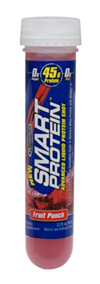November 2nd, 2011 by KennyLinMD in Health Policy, Opinion
No Comments »

 Last month, my family was involved in a scary traffic accident en route to the Family Medicine Education Consortium‘s North East Region meeting. I was in the left-hand eastbound lane of the Massachusetts Turnpike when a westbound tractor trailer collided with a truck, causing the truck to cross over the grass median a few cars ahead of us. I hit the brakes and swerved to avoid the truck, but its momentum carried it forward into the left side of our car. Strapped into child safety seats in the back, both of my children were struck by shards of window glass. My five year-old son, who had been sitting behind me, eventually required twelve stitches to close a scalp laceration. Miraculously, none of the occupants of the other six damaged vehicles, including the truck driver, sustained any injuries.
Last month, my family was involved in a scary traffic accident en route to the Family Medicine Education Consortium‘s North East Region meeting. I was in the left-hand eastbound lane of the Massachusetts Turnpike when a westbound tractor trailer collided with a truck, causing the truck to cross over the grass median a few cars ahead of us. I hit the brakes and swerved to avoid the truck, but its momentum carried it forward into the left side of our car. Strapped into child safety seats in the back, both of my children were struck by shards of window glass. My five year-old son, who had been sitting behind me, eventually required twelve stitches to close a scalp laceration. Miraculously, none of the occupants of the other six damaged vehicles, including the truck driver, sustained any injuries.
Family physicians like me, and physicians in general, like to believe that the interventions we provide patients make a big difference in their eventual health outcomes. In a few cases, they do. But for most people, events largely outside of the scope of medical practice determine one’s quality and length of life, and Read more »
*This blog post was originally published at Common Sense Family Doctor*
October 25th, 2011 by Dr. Val Jones in Health Tips
2 Comments »
 Perhaps you’ve heard that increasing your water intake is part of a healthy lifestyle – and that you should drink at least 8 glasses of a day. This “rule of thumb” is actually not based on scientific evidence. Although for many people it’s not harmful advice, you may not need to work so hard at getting enough water every day.
Perhaps you’ve heard that increasing your water intake is part of a healthy lifestyle – and that you should drink at least 8 glasses of a day. This “rule of thumb” is actually not based on scientific evidence. Although for many people it’s not harmful advice, you may not need to work so hard at getting enough water every day.
The amount of water that your body needs depends on three main variables (yes, needs can vary with different illnesses and conditions, but let’s talk about the average American):
1. Your body’s size
2. Your activity level
3. Your environment (weather and humidity conditions)
The larger you are, the more water you lose from sweat (be it from physical activity or hot weather conditions), the more water you need to replace. The amount you need can vary a lot – and in most cases there are two tricks you can use to stay properly hydrated: Read more »
October 17th, 2011 by PeterWehrwein in Health Tips
No Comments »

Barbara Moscowitz, coordinator of geriatric social work for the Geriatric Medicine Unit at Harvard-affiliated Massachusetts General Hospital, spoke to me and about a dozen other Harvard Medical School employees yesterday as part of series of seminars on family life and other issues offered by the school’s human resources department.
Moscowitz’s talk was titled “Dementia and Cognitive Decline (Aging Gracefully).” I was there mainly out of professional interest because I’ve written a couple of articles for the Harvard Health Letter recently about Alzheimer’s and dementia, including a piece in the September 2011 issue about mild cognitive impairment and another in July 2011 about new Alzheimer’s guidelines.
But I also wonder about how my own aging brain is faring (not well, it seems, on some days) and I have an older parent (age 81).
So my curiosity wasn’t entirely work related.
A disease of behaviors
Moscowitz covered Read more »
*This blog post was originally published at Harvard Health Blog*
October 14th, 2011 by Dr. Val Jones in Announcements, Health Tips
3 Comments »
 I’m proud to have been selected as the national, nutrition (“mind”) coach for the Boys & Girls Clubs’ Triple Play Fit Family Challenge. This is a 6-week challenge – five families (you can meet the families on the Fit Family Challenge blog) will compete for a grand prize: an all-expenses-paid vacation!
I’m proud to have been selected as the national, nutrition (“mind”) coach for the Boys & Girls Clubs’ Triple Play Fit Family Challenge. This is a 6-week challenge – five families (you can meet the families on the Fit Family Challenge blog) will compete for a grand prize: an all-expenses-paid vacation!
My job is to support the families with evidence-based nutritional information that they can use to establish lifelong healthy eating patterns. Proper nutrition is one of the most critical components of preventive medicine, and can help to reduce the risk for America’s top 3 killer diseases: heart disease, cancer, and stroke (not to mention type 2 diabetes, osteoporosis, and high blood pressure). If these families help their kids to adopt healthy lifestyles now, they will have a lower lifetime risk of many major diseases. And I hope that the kids will also become evangelists for healthy eating to their peers!
I’ve been thinking a lot about what I’ve learned over the years as a nutrition journal editor, avid foodie, and rehab physician, and I think that (to begin) I can truly boil down all we know about American eating habits into these three pieces of advice (note that these are based on HHS’s Dietary Guidelines For Americans, 2010): Read more »
August 6th, 2011 by Dr. Val Jones in Opinion, True Stories
7 Comments »
 I’m feeling rather nauseated today. This is my fifth day of a high-protein, low-fat, low-carb diet, and I have already developed a deep-seated hatred of egg whites. My regimen includes uncomfortable quantities of grilled chicken breast, fat-free cottage cheese, Greek yogurt, and egg protein, occasionally garnished with a lettuce leaf or perhaps a blueberry. Just yesterday I had to drink a plastic test tube of liquid protein to meet my goals (see offending product image to the left). It looked like a blood-tinged albumin sample, and tasted like orange flavor crystals with a splash of soy sauce.
I’m feeling rather nauseated today. This is my fifth day of a high-protein, low-fat, low-carb diet, and I have already developed a deep-seated hatred of egg whites. My regimen includes uncomfortable quantities of grilled chicken breast, fat-free cottage cheese, Greek yogurt, and egg protein, occasionally garnished with a lettuce leaf or perhaps a blueberry. Just yesterday I had to drink a plastic test tube of liquid protein to meet my goals (see offending product image to the left). It looked like a blood-tinged albumin sample, and tasted like orange flavor crystals with a splash of soy sauce.
I know that the scientific literature (if we distill it and perhaps oversimplify it a bit) seems to suggest that there may be a short-term advantage to high-protein diets in terms of weight loss, but that this advantage fades after a year. Yet almost every trainer and athlete I’ve encountered keeps telling me that the only way to get “really lean” is to eat unimaginable amounts of protein, avoid refined carbs, dramatically limit the complex carbs, and dial down the fat intake. Essentially, I must be reduced to swilling test tubes of orange-soy “albumin.”
When I strenuously protested the diet plan presented to me by my trainer, she simply said, “If you care what food tastes like then you’re not serious about losing fat.”
“Well how long do I need to consume 50% of my calories as protein?” I asked meekly, assuming that there would be an end point in sight. Read more »
Last month, my family was involved in a scary traffic accident en route to the Family Medicine Education Consortium‘s North East Region meeting. I was in the left-hand eastbound lane of the Massachusetts Turnpike when a westbound tractor trailer collided with a truck, causing the truck to cross over the grass median a few cars ahead of us. I hit the brakes and swerved to avoid the truck, but its momentum carried it forward into the left side of our car. Strapped into child safety seats in the back, both of my children were struck by shards of window glass. My five year-old son, who had been sitting behind me, eventually required twelve stitches to close a scalp laceration. Miraculously, none of the occupants of the other six damaged vehicles, including the truck driver, sustained any injuries.



 Perhaps you’ve heard that increasing your water intake is part of a healthy lifestyle – and that you should drink at least 8 glasses of a day. This “rule of thumb” is actually
Perhaps you’ve heard that increasing your water intake is part of a healthy lifestyle – and that you should drink at least 8 glasses of a day. This “rule of thumb” is actually 

 I’m feeling rather nauseated today. This is my fifth day of a high-protein, low-fat, low-carb diet, and I have already developed a deep-seated hatred of egg whites. My regimen includes uncomfortable quantities of grilled chicken breast, fat-free cottage cheese, Greek yogurt, and egg protein, occasionally garnished with a lettuce leaf or perhaps a blueberry. Just yesterday I had to drink a plastic test tube of liquid protein to meet my goals (see offending product image to the left). It looked like a blood-tinged albumin sample, and tasted like orange flavor crystals with a splash of soy sauce.
I’m feeling rather nauseated today. This is my fifth day of a high-protein, low-fat, low-carb diet, and I have already developed a deep-seated hatred of egg whites. My regimen includes uncomfortable quantities of grilled chicken breast, fat-free cottage cheese, Greek yogurt, and egg protein, occasionally garnished with a lettuce leaf or perhaps a blueberry. Just yesterday I had to drink a plastic test tube of liquid protein to meet my goals (see offending product image to the left). It looked like a blood-tinged albumin sample, and tasted like orange flavor crystals with a splash of soy sauce.







